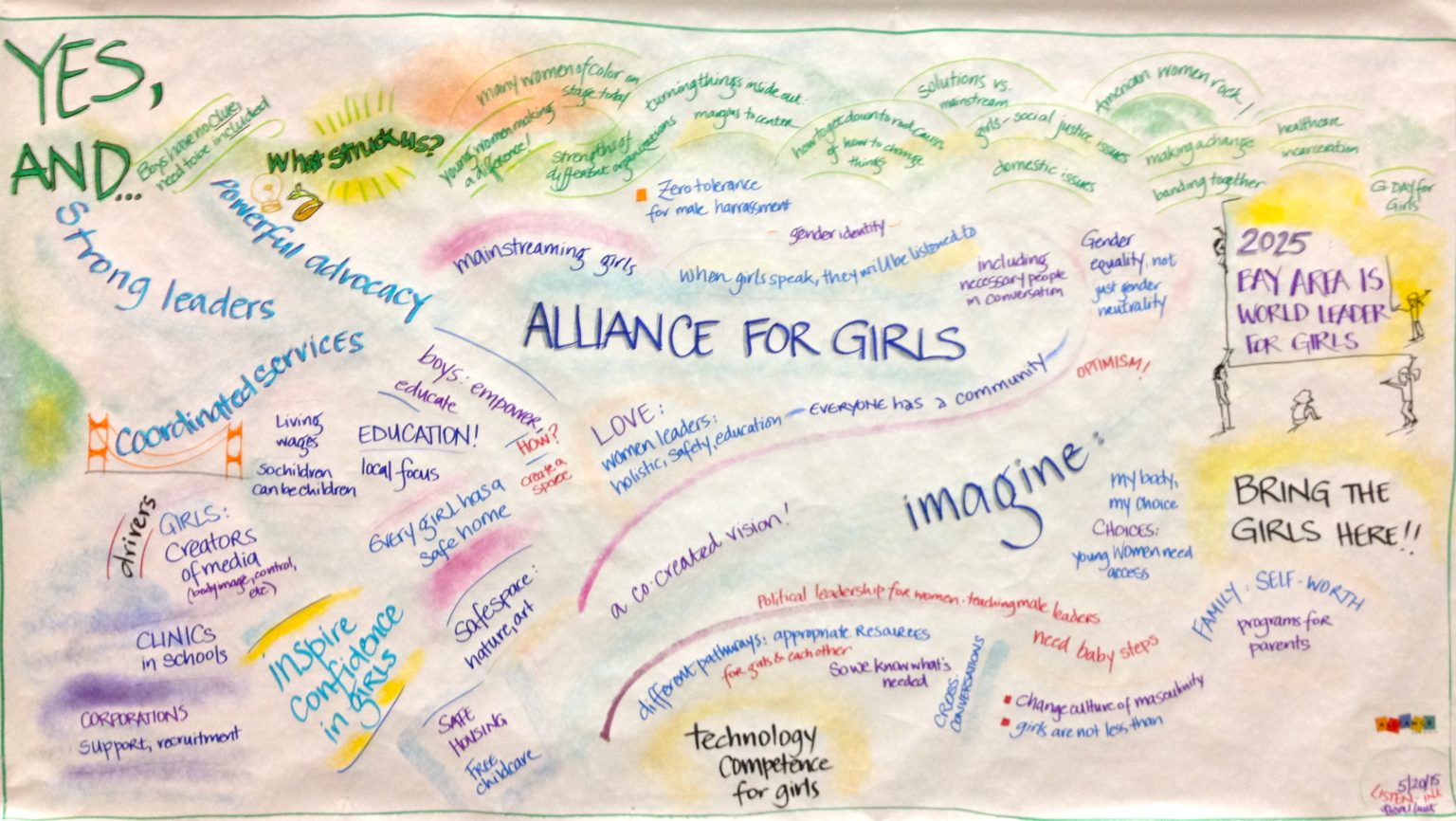
The Future of Girls: Alliance for Girls Conference
There are too many wonderful things to mention about the 3rd Annual Alliance for Girls Conference I attended this past Wednesday. Alliance for Girls is a TWI annual grantee and throughout the conference many of TWI’s values were employed. Dialogue was a common tool used in sessions and relationship building was central to the way attendees were encouraged to interact, inspiring many collaborations. We all came into the conference with an assumed trust that Alliance for Girls was here to serve the main purpose of advancing woman and girls.
We had the pleasure of hearing from 15 year old Anna and 18 year old Liana who are young girl leaders in their communities. Some of the most powerful moments were inspired by the event’s incredible speakers including Lateefah Simon, Alicia Garza, and Teresa C. Younger, among others previously mentioned. I offer here a reflection on some of the most compelling themes that emerged.
This year’s conference was about building a girl’s agenda, which is long overdue. Even before #BringBackOurGirls, before Malala Yousafzai’s attempted assassination, we’ve needed a girl’s agenda. And I dare say it needs to be universal. While I was told this Alliance for Girls conference had the most women of color in attendance and speaking, in my opinion an even bigger success was the conference’s recognition of the intersectionality of social injustice and women and girls’ issues.
“All the work we are doing for girls, all the services, is owed to them.”
–Lateefah Simon (Keynote speaker), Program Director @ Rosenberg Foundation
From the start of the conference the intersections of race, gender, class, and education were explicitly talked about. Throughout the conference, as we worked towards building a girls agenda–one of the last sessions, the awareness of intersectionality and structural injustice was echoed. Among the women, and few men, who attended it was clear that girls’ safety, health, and education could not be addressed in isolation.
We cannot truly create a girls agenda and true change for women and female bodies unless we acknowledge the necessary structural change that needs to happen in all aspects of our society. Until black women are paid as much as white women and all women are paid as much as men; until girls around the world have access to education; until all girls have a safe house to sleep in every night; until our justice system stops unfairly over punishing women–especially women of color, we cannot have a girls agenda.
In this conference, this network of organizations serving and advocating for girls, women who were trying to stop child trafficking were talking with women who worked with immigrant girls about holistic approaches to education, sexual health, and housing. A program director from Girls Inc. and a dean of students from Holy Names High School can both agree that self-esteem, confidence, and choice need to be taught to girls before they become women and before we need intervention rather than prevention.
At the conference we agreed that creating pathways to success, despite circumstances, is a must. We must do more than prevention and intervention, we must carve out ways for girls to have options for success even after trauma, abuse, teen pregnancy, depression, and all other circumstances young girls may find themselves in. All of this work and solution-based programming happening for girls is amazing, yet we all still agree with Lateefah Simon that it is owed to them-from birth.
As the afternoon session began and we started to speak, write, discuss, and envision what the future for girls would look like we all came to realize that it’s more than nonprofits, foundations, charity; it’s about a culture shift. It’s about changing the masculinity paradigm that this world assumes. To truly create a girls agenda we need to reframe the current ethos of our society which devalues girls, women, and female bodies.
We must understand that just like men and male bodies, women and girls are owed the same human rights, opportunities, choices, and education from birth. In addition to continuing the inspiring and necessary work the Alliance for Girls network of organizations and leaders is doing, we must shift the culture to one that includes and empowers girls. It is long overdue for a girls agenda, but I have faith that the Alliance for Girls can make it happen.